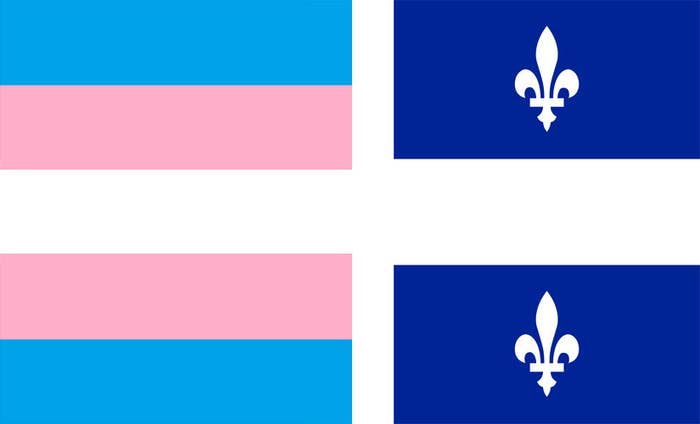Quebec passed Bill 35 in December 2013, a piece of legislation that would mean trans people no longer require invasive surgery before being allowed to change their sex on government documents.

But now, closing in on two years later, nothing has actually changed.
"We have a potential for change but for now nothing has been done," said Gabrielle Bouchard, the Peer support and Trans advocacy Coordinator for the Centre for Gender Advocacy.
As is, those who wish to change the sex marker on provincial identification must undergo either a hysterectomy or a vaginoplasty. It's essentially forced sterilization, said Bouchard, in addition to being a violation of a person's privacy and bodily integrity.
"In order to be administratively recognized by the state, you need to be surgically modified by the state. And that's problematic," she told BuzzFeed Canada.
"Some people do want surgeries but it shouldn't be linked with your legal identity."
The Centre For Gender Advocacy along with four trans Quebec residents have filed a lawsuit against the province's attorney general to update the civil code. That too is stalled.

The group wants the province to change not only how gender marker requests are handled, but also the rules around legal name changes.
"Basically what we're doing is trying to address all the articles of the civil code that have an impact because of gender on trans people in their life, from birth to death," said Bouchard.
While Quebec has done away with a rule that forced anyone changing their name to publish both their old and new name along with their address, advocates still want changes.
The current rules, for example, say only those 18 and over can change their names. Having a name that doesn't match official records puts younger Quebecers at risk of being outed, said Bouchard. They're also fighting to allow parents to change their title on birth certificates. As is, someone could be listed as the "Mother" when they are in fact a "Father."
But, for now, the legal action can't move forward until Quebec settles on how it will handle gender marker changes.
"We're stuck in limbo because the same person who's not enacting the law is the general attorney," said Bouchard.
"Right now we're keeping trans people in a place of distress."
Quebec attempted to make some headway earlier this year with a commission evaluating what the new rules regarding gender marker changes should look at.

